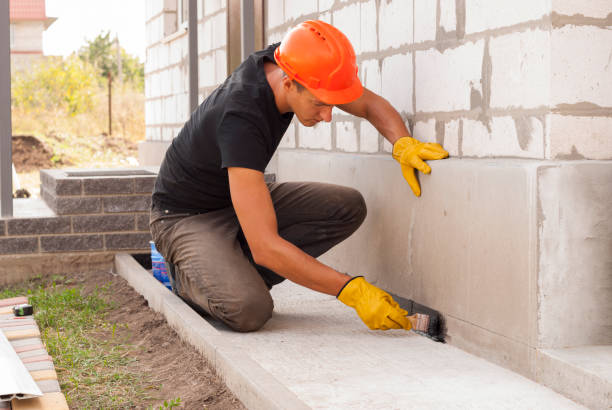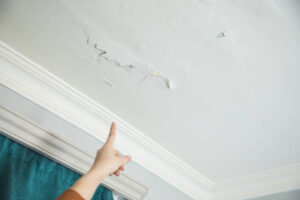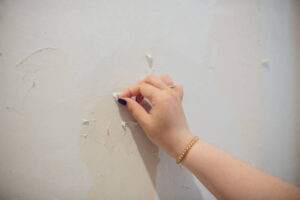All types of structures, whether residential, commercial, old, or new, are prone to foundation problems. Several factors can cause structural issues, such as moisture in the ground, earthquakes, major land shifts, and poor workmanship.
It can be concerning and stressful for property owners to see changes in the walls or ceilings, making them feel like their homes or spaces are no longer safe. While it’s best to consult a professional to evaluate a structure properly, it is also important to equip yourself with basic knowledge about the most common signs indicating structural damage or stability issues.
Page Contents
1. Drywall or Brick Wall Cracks
An uneven or faltering foundation can lead to cracked walls. Signs of serious wall cracks include:
• Diagonal cracks coming off door or window frames
• Unusually long cracks that are horizontal
• Cracks more than 1/4 inches
• Large cracks around doorframe corners
• Drywall cracks that keep coming back even after plastering
It should be noted, however, that ground settling can also result in cracks in the walls. Settling occurs when the soil where a property was built is compressed and accepts the full weight of the structure. This is natural; it happens in all structures and is harmless in most cases.
2. Ceiling Cracks
Matching vertical cracks or cracks along the entire length of the ceiling indicate a major foundation issue. You should watch out for cracks longer than 12 inches and wider than 1/8 of an inch.
3. Slab Foundation Cracks
When a slab foundation is cracked, it can show up as broken flooring with uneven surfaces. This can be caused by poor construction work, the encroachment of large tree roots in concrete slabs, improper soil preparation, poor concrete curing, and more.
4. Gaps Between Windows and Doors
Look out for crooked doorframes, gaps beneath doors, and window frames separating from the surrounding trim, as these are signs of movement in the foundation.
5. Sloped Flooring or Uneven Surfaces
If you see a dip in the middle of a room, sagging floors, and squeaky floorboards, your structure’s foundation might be damaged.
6. Bowing Walls
Walls that are bowing, especially if they are bowing for more than three inches, indicate structural issues, which will require stabilization and straightening. Depending on a property’s specific condition, further foundation repair solutions might be needed.
7. Persistent Mildew Smell in Your Crawl Space or Basement
Excessive moisture resulting in a strong mildew smell might be a sign of water seeping into small cracks in the foundation.
8. Nails Coming out of Drywall
This could occasionally happen, in which case it shouldn’t be a big deal. However, if you notice several nails popping out at once or if it becomes excessive, it might be a sign of your foundation shifting.
What Happens if Foundation Issues Are Not Immediately Addressed?
• Repairing major structural issues can become more expensive and time-consuming
• Structural damage will spread
• Water and mold damage can start and worsen
• Your property could be infested with pests and insects
• The value of your property could go down, making real estate sales complicated
• Plumbing or drainage problems might occur
• A structural collapse is possible due to foundation issues, but this usually takes many years
What Can You Do To Prevent Major Foundation Damage?
• Regular inspection of a structure’s foundation
• Routine maintenance of the foundation, such as dealing with hairline cracks as soon as possible
• Installing proper water drainage systems
• Regular check-ups of your plumbing system
• Adequate waterproofing to avoid excessive moisture from seeping in or building up
Observe Changes in Your Property’s Appearance To Detect Potential Problems
No matter how busy life gets, it is essential to be alert and on the lookout for physical indicators of structural stability issues. Once you notice minor or significant changes, the next important step is to seek the assistance of professionals who will perform an inspection and recommend the appropriate foundation repair needed.
Also Read:Floor Safety with Vinyl Flooring Sheets
Let Foundation Repair Specialists Help You Keep Your Property Safe
Look for a local licensed contractor in your area that provides reliable, high-quality foundation repair solutions. Reaching out to industry professionals with the relevant skills and years of experience is the first step toward ensuring your property will be safe and stand the test of time.

Lois Lane is a professional blogger and a seasoned Content writer for wellhousekeeping.com. With a passion for simplifying complex Home Decor topics, he provides valuable insights to a diverse online audience. With four years of experience, Lois has polished his skills as a professional blogger.






